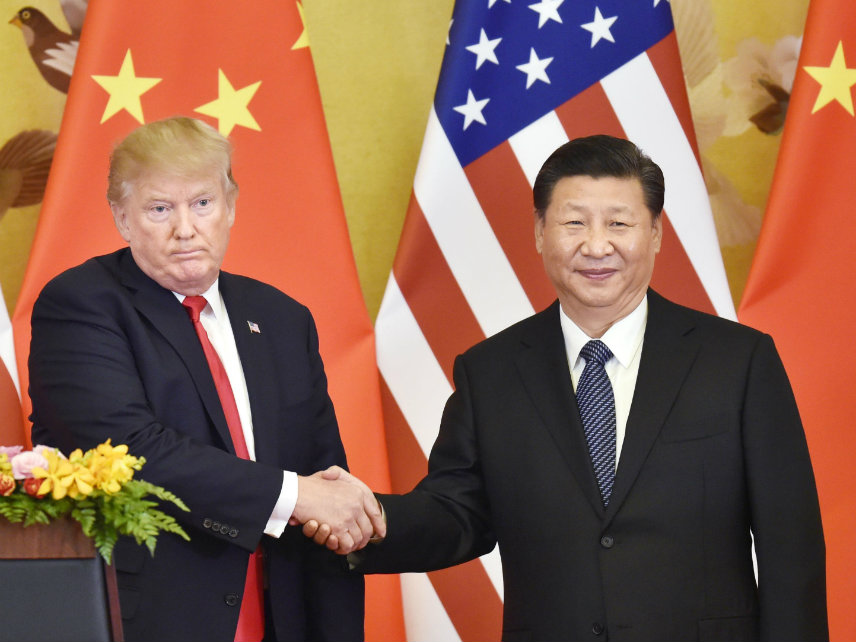Next Month's Trump-Xi Meeting Could End the Trade War, or Escalate It
Trump seems to prefer escalation. More tariffs could be coming in early December.

If a November meeting between U.S. President Donald Trump and Chinese President Xi Jinping does not produce an agreement, the U.S. could further escalate the two nations' trade war with additional tariffs before the end of the year.
Don't get too optimistic about a thaw. Both sides have said they might exclude trade talks entirely when the leaders of the two countries meet in Argentina next month.
Despite that, Bloomberg reports that the Trump administration is ratcheting up the pressure for China to cave on trade—though it remains largely unclear exactly what demands the administration is making. If no deal is reached during the upcoming Group of 20 summit in Buenos Aires, the United States could announce plans to impose tariffs on all Chinese goods in early December, with the tariffs taking effect shortly after the new year.
Already, about $250 billion of Chinese goods imported to the U.S. are subject to tariffs. Most of those imports are currently being charged a 10 percent tariff, which is set to increase to 25 percent at the end of the year. An estimated $257 billion of Chinese imports remain tariff-free for now. If the Trump administration expands the tariffs to include the rest of those imports, the higher taxes would hit consumer goods such as clothing, shoes, and Apple products (which were originally supposed to be included in the most recent round of tariffs before being exempted at the last moment).
Citing a report from Citigroup economists, Bloomberg says that possible escalation of the trade war could hit consumers 10 times harder than earlier tariffs aimed mostly at industrial inputs and goods.
The potential for more tariffs could further rattle a stock market that is already wobbling.
It's fair to wonder whether Trump even wants to make a deal. There have been no trade talks between the countries since August, when the U.S. imposed the latest round of tariffs. Since then, the two sides seem to have drifted farther apart.
Last week The Wall Street Journal reported that the U.S. is demanding that China produce a "concrete proposal to address Washington's complaints about forced technology transfers and other economic issues." But Chinese officials are unwilling to engage in a one-sided negotiation, and they worry that Trump could undermine any potential deal with as little as a single tweet, according to the Journal.
The Washington Post notes that Trump on at least three occasions has blown up negotiations between his own trade officials and senior Chinese officials. So China probably has good reason to feel wary.
Unless the Trump administration suddenly reverses course before next month's meeting, Xi has two choices. He can refuse to go along with Trump's demands—allowing him to save face domestically by standing up to America—or he can offer a new deal, giving Trump more fodder for tweets that humiliate China's attempt to work with the U.S. to end the trade war. Given that choice, not negotiating seems like the only reasonable thing to do. Indeed, that's exactly what Trump would do if the shoe were on the other foot.
Unfortunately, unilateral demands that sabotage the likelihood of an agreement will translate into further escalations of the trade war, and that will translate into higher prices for everything Americans import from China. And for bow it's not even clear whether the Trump administration is looking for a different outcome.
"They do not seem to want to talk," Chinese Foreign Minister Wang Yi told a group of American businessmen at a private meeting in New York last month, according to the Post. "We don't know if they're uncoordinated, or if they're negotiating in bad faith."
It could well be both.


Show Comments (33)